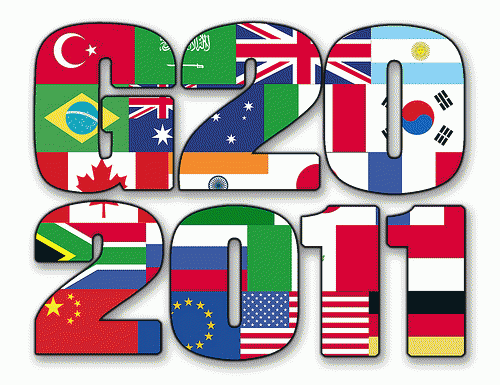Want to earn $400,000? Here's what you need to do: find an exit policy for countries wishing to leave the European Monetary Union. That's it. If your idea is accepted, the money will be wired into your account by Simon Wolfson, the CEO of British retailer Next Group.
For the moment Wolfson's money looks safe. No matter what solution economists may come up with, the politicians are guaranteed to spike it. Quite simply, the deep divide that runs between the old rich and the emerging countries rules out an agreement on fixing the global economy. In fact, the G20 Cannes summit in November will be watched with interest for the posturing and power play of rival blocs than any constructive brainstorming.
G20: Old wine in new bottle
The trouble with finding a solution to what remains an essentially political issue is that what is good economics is bad policy. The G20 is being described as the economic steering committee of a new world order where emerging economic powers have a major say but in reality its very membership is an indication of status quo. As well as the US, Russia, China, India and Brazil, the G20 also includes the European Union, France, Germany, Italy and the UK. Of its 20 members, 12 belong to the Western axis.
So when headlines scream of the G20 delivering a virtual demarche, asking the Europeans to sort out the euro mess, just who is the group really wagging its finger at? Does Nicolas Sarkozy, the G20's current chair, issue an ultimatum and find it on his desk next morning as President of France?
The theatre of the absurd continues. The BRICS (the much talked about team of Brazil, Russia, India, China and South Africa) are included in the G20 summit this year. Less wealthy than the Europeans but flush with cash, they have offered a bailout plan: recapitalise the International Monetary Fund which can then offer loans to the desperately seeking PIGS (Portugal, Ireland, Greece and Spain).
Irreconcilable differences
However, the idea of recapitalisation of the IMF has been summarily dismissed by the US, which fears further dilution in Western stakeholding in the IMF. Indeed, this is one of the major irreconcilables that prevent consensus. Recapitalisation of the Fund will lead to demands for IMF reform. Translation: BRICS influence will rise at Europe's expense. Imagine Russia's Vladimir Putin or the Indians having a say in the running of the Bretton Woods sisters. Shock!
There are, of course, some internal differences over how much help the BRICS should offer. South Africa is quite clear: do nothing, given that the West's problems are of its own making. Brazil's view is that if they help, they want some benefits or at least some recognition.
The Financial Times couldn't have summed it up better, "The BRICS offer has been rebutted because it's not in the short-term political interest of the leaders of the US, UK, Australia and Canada to suggest to European leaders that an exogenous bailout is possible. If it were just the BRICS cash, that would be one thing, but in order to maintain influence in the IMF, the English-speaking quarter would have to follow suit. And there's no desire to do that right now."
(Note: You can view every article as one long page if you sign up as an Advocate Member, or higher).





